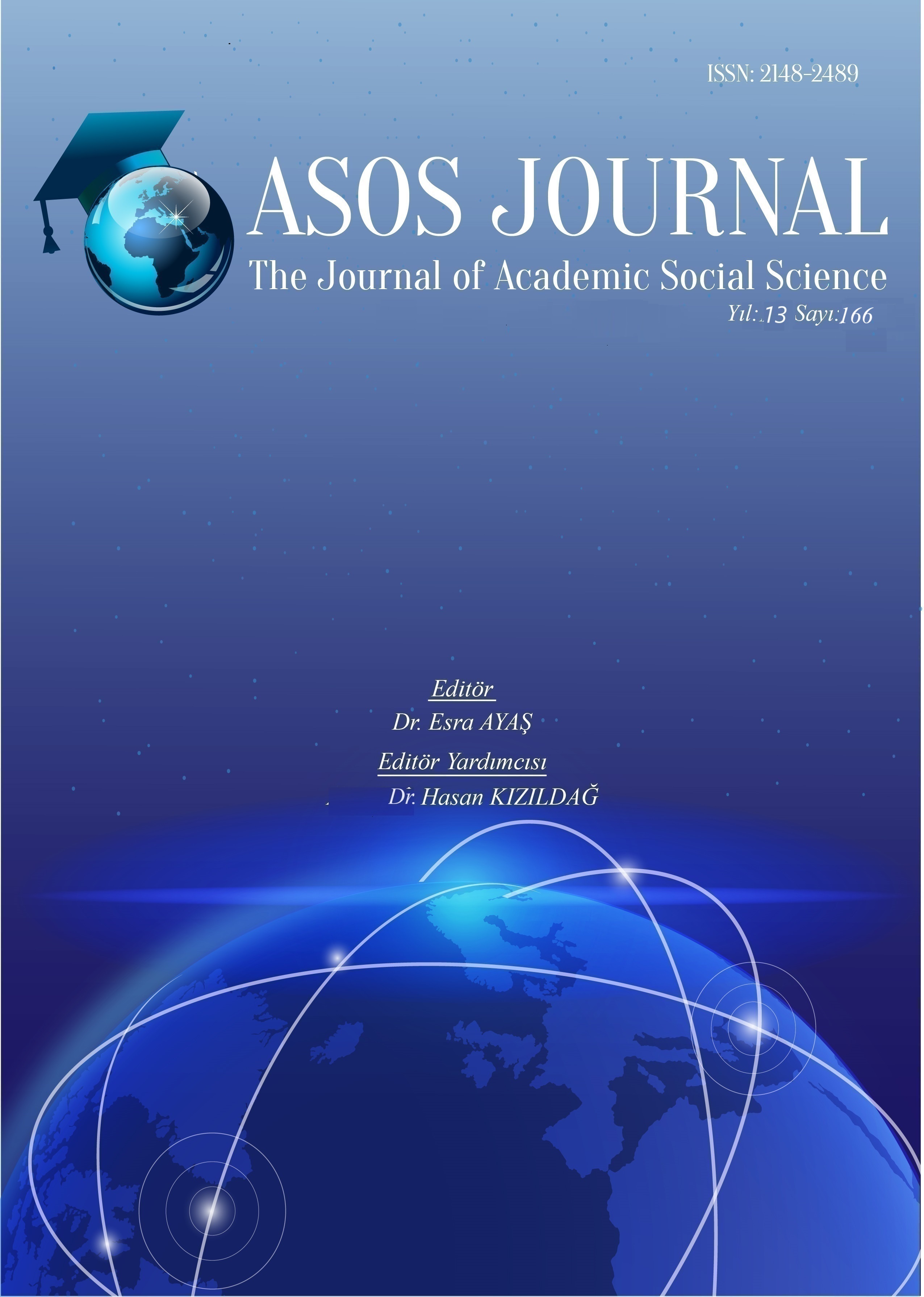YETİŞKİN BİREYLERDE COVID-19 AŞI DÜŞÜNCESİ, COVID-19 KORKUSU VE KORONAVİRÜS ANKSİYETESİNİN İNCELENMESİ
Author :
Abstract
Bu araştırma yetişkin bireylerin Covid-19 korkusu, koronavirüs anksiyetesi ve Covid-19 aşı düşüncelerini belirlemek amacıyla planlanmıştır. Tanımlayıcı olarak yürütülen bu araştırma 01.02.2021-01.04.2021 tarihleri arasında 1226 yetişkin ile tamamlanmıştır. Araştırma verileri Sosyodemografik Bilgi Formu, Koronavirüs Anksiyete Ölçeği ve Covid-19 Korkusu Ölçeği ile çevrimiçi toplanmıştır. Verilerin değerlendirilmesinde sayı, yüzde, bağımsız gruplarda t testi, One Way Anova testi ve korelasyon analizi kullanılmıştır. Kadınlarda, kronik hastalığı olanlarda, il merkezinde ikamet edenlerde, Covid-19 aşı tavsiyesi alan, Covid-19 aşısı yaptırmayı düşünen ve sağlık çalışanlarından Covid-19 aşı tavsiyesi alanlarda Covid-19 korkusunun daha yüksek (p<0.05); kadınlarda, geliri giderinden az olan, Covid-19 aşı tavsiyesi alan, Covid-19 aşı uygulaması tavsiye eden ve Covid-19 aşısı olmayı düşünenlerde koronavirüs anksiyetesinin daha yüksek (p<0.05) olduğu saptanmıştır. Koronavirüs anksiyetesi ve Covid-19 korkusu arasında pozitif yönde orta düzeyde ilişki (r: 0.532, p: <0.001) olduğu belirlenmiştir. Araştırma sonuçları yetişkinlerin Covid-19 enfeksiyonu ve Covid-19 aşıları hakkında çeşitli endişe ve olumsuz düşüncelerinin olduğunu göstermektedir. Halk sağlığının korunması ve sürdürülmesi için solunum yoluyla bulaşan enfeksiyonların kontrolü ve Covid-19 aşıları hakkında bilgilendirmelerin yapılması önerilmektedir.
Keywords
Abstract
Objective: This research was planned to determine adult individuals' fear of Covid-19, coronavirus anxiety and Covid-19 vaccine thoughts. Material and Methods: This descriptive research was completed with 1226 adults between 01.02.2021 and 01.04.2021. Research data was collected online with the Sociodemographic Information Form, Coronavirus Anxiety Scale and Covid-19 Fear Scale. Number, percentage, t test in independent groups, One Way Anova test and correlation analysis were used to evaluate the data. Fear of Covid-19 was higher in women, those with chronic diseases, those residing in the city center, those who received Covid-19 vaccination advice, those who considered getting the Covid-19 vaccine, and those who received Covid-19 vaccine advice from healthcare professionals (p<0.05); It was found that coronavirus anxiety was higher (p<0.05) in women, those whose income was less than their expenses, those who received Covid-19 vaccination advice, those who recommended Covid-19 vaccination and those who were considering getting the Covid-19 vaccine. It was determined that there was a moderate positive relationship (r: 0.532, p: <0.001) between coronavirus anxiety and fear of Covid-19. Research results show that adults have various concerns and negative thoughts about Covid-19 infection and Covid-19 vaccines. In order to protect and maintain public health, it is recommended to provide information about the control of respiratory infections and Covid-19 vaccines.





